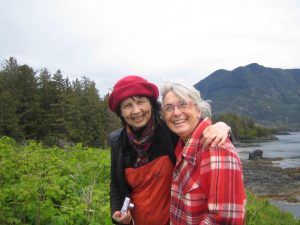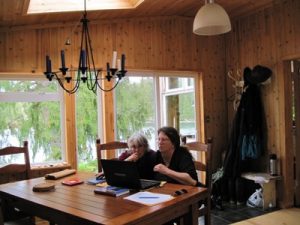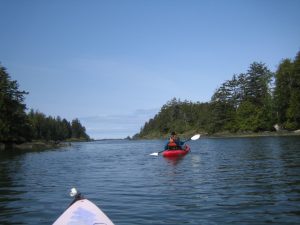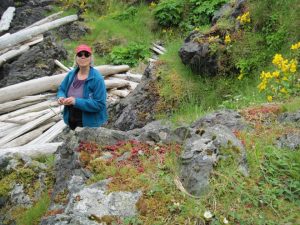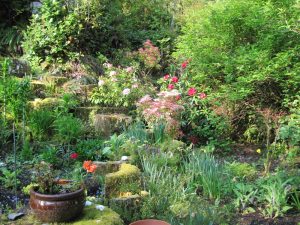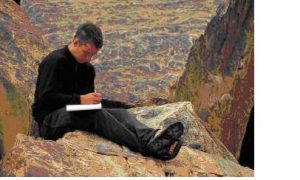Sometimes it seems like the stars have to be perfectly aligned in the heavens for any real writing to be done, never mind starting and finishing a book.
But there are some elements that help. Inspiration is one but it’s unpredictable at the best of times. It’s far better to use what I call the the writing triangle.
The triangle is composed of a place, a time and a plan.
Every writer deserves – and needs – a place to write. Some folks are happy at the kitchen table or super creative at the local cappuccino bar. Personally, I think to be most effective, a person should have a room – no matter how small – that they can call all their own. If need be, it can even be part of a room. What’s important is that this be a place where you will not be disturbed.
Once you have a place, you need a time. And that doesn’t mean whenever you can make time or the creative muse happens to strike. If you are serious about writing you will make time to pursue your craft on a regular basis.
This might be a couple of hours in the morning before you go to work, two hours after the kids go to bed or four hours on Saturdays. The important detail here is to have a regular time and stick to it. Make this your time for writing, whether you feel like it or not. Believe me, if you sit in front of a blank screen long enough, the boredom will make you want to write.
And, contrary to popular opinion or a strong sense of responsibility or guilt, very few things will happen that require your immediate attention. Years ago when my step-daughter was young, I had my writing desk in a corner of the living room. After many interruptions I nicely but firmly asked her not to disturb me unless we needed to evacuate the house or someone needed to go to the hospital. It worked. (But having a private place makes it easier.)
Now for the plan part. If you want to finish a book and not make it your life work, it’s best to give yourself a deadline. Let’s say you’re starting your project on January 1 and want to have a completed first draft by Sept. 1. Divide those 35 weeks by the number of chapters you estimate your book will have. Now you know how much time you can devote to each chapter. For example 35 weeks divided by 16 chapters means you can spend about two weeks writing each chapter.
Don’t be overly optimistic – vacations and life happen and you want to enjoy them. But you also want to finish your book. And don’t get overly anal about your plan; it is a guideline, not written in stone.
Every time I begin a book I make a plan and adjust it as necessary. That means once a month or so I check my plan to see how I’m doing. To date I’ve never finished a draft or book when I initially thought I would, but without a place, time and plan, I know it would have taken me much longer.

